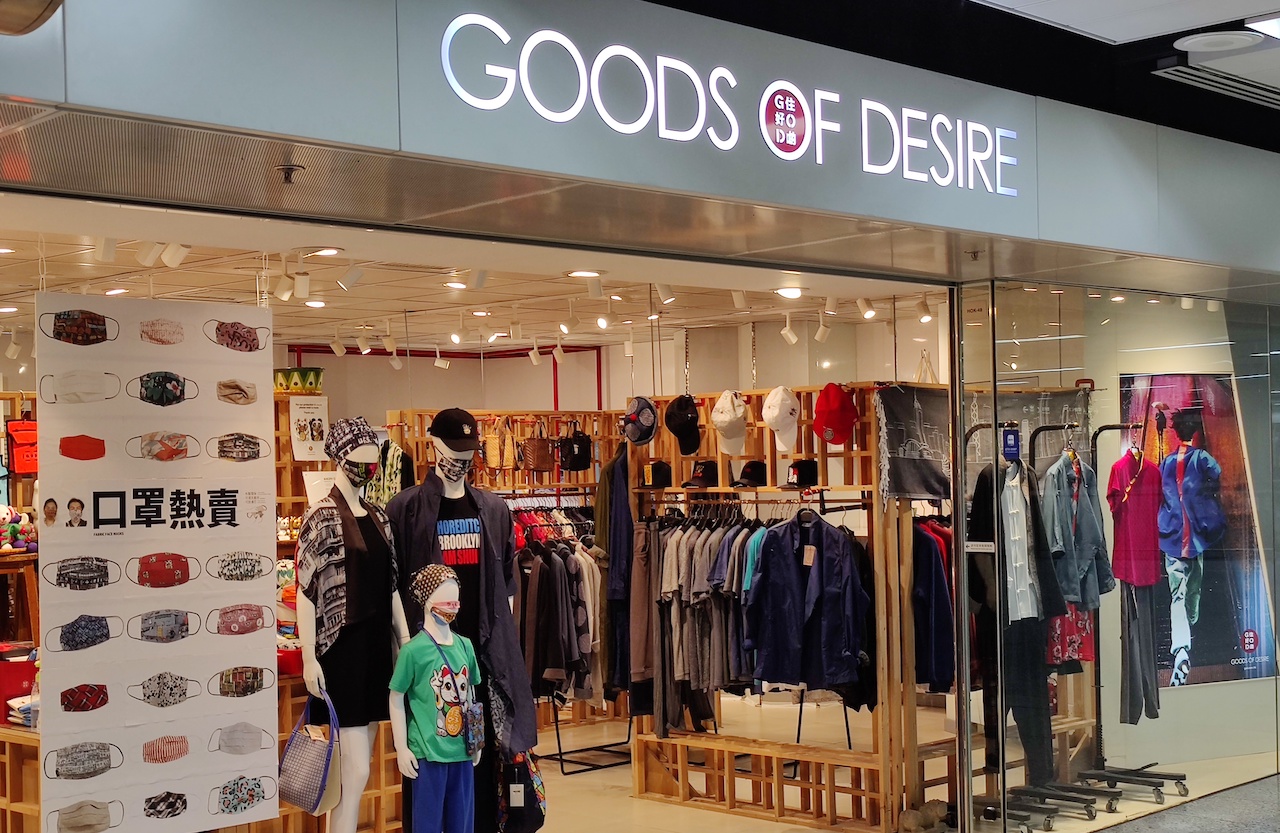Can City's Economy Survive
Without Tourism Dollars?
The Answer’s Yes, Apparently, But Not as We Know It

SUE BRATTLE
Panel discussion on Hong Kong tourism at the Foreign Correspondents’ Club
AS IF anyone needed reminding how dire life had become, the Hong Kong government announced stricter measures to fight COVID-19 the day before this panel took place. As the city suffered an uptick in cases, this talk on the fate of Hong Kong tourism became the last real event, as opposed to online Zooms, the FCC would hold for the foreseeable future. I stayed away and watched on Facebook.
Against such doom and gloom, all three panellists rose above the crisis to give fascinating insights into their very different worlds. Asim Hussain, co-founder of Black Sheep Restaurants and owner of the only Punjabi restaurant in the world to have a Michelin star, described things as “tougher than tough”. “We’ve been between a rock and a hard place since the unrest last year,” he said, referring to the months of protests in Hong Kong.
Douglas Young, founder of the Goods of Desire chain that draws on Hong Kong designs for its lifestyle brand, said: “Our workshops in Hong Kong have saved us. We haven’t been able to produce goods for our shops because there is no demand. But we can produce face masks, and 70 to 80 per cent of our business is now masks.”
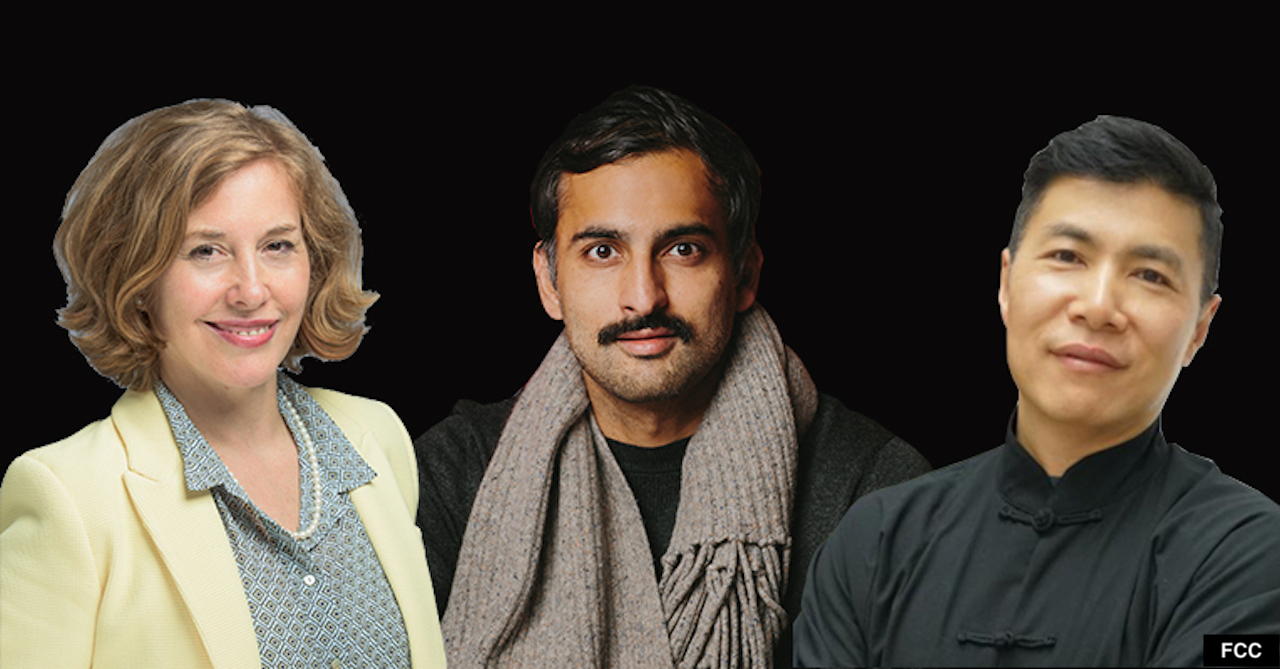
Even financial advisor Alicia García Herrero, chief economist for Asia Pacific at French investment bank Natixis, managed some good news. “The fact the GDP hasn’t collapsed here is a positive. We’re entering a double recession, but we’re better than the US, Europe and some other Asian countries. The finance sector here is doing well. Yes, it is difficult for Hong Kong but the economy is still holding up.”
Then came the home truths. Of the 15,000 restaurants that were operating in Hong Kong last summer, Hussain reckoned a third will shut by autumn this year. Herrero said: “In my humble opinion, I believe Hong Kong government has been stingy given the resources it has. Singapore and Australia have done more. The government should step up more than we’ve seen so far.” And retailer Young said: “I believe the world will not be the same again.”
Herrero, an adviser to the Hong Kong Monetary Authority’s research arm and the Asian Development Bank, reckoned Hong Kong is suffering from a triple whammy – the trade war, the pandemic, and what she called protests-plus, the lengthy protests last year and the ongoing unrest in the wake of the National Security Law recently imposed on the city by China. “Retail sales depend at least by half on arrivals from the mainland,” she said.
Why would mainland Chinese want to visit a city where protests and anti-mainland sentiment could flare any moment? Young saw this as a global issue. “A fourth thing affecting us is this anti-Asia, anti-Chinese feeling. I don’t see people around the world wearing modern Chinese clothing. There’s a huge correlation between tourists and retail. We have two shops at the airport we rely on, and we haven’t operated them for six months.”
Hussain, who owns 20 restaurants across the city, described the new normal as “a cat-and-mouse game”. He explained: “When a wave comes, we need to hunker down. We will never go back to normal; for the next year at least, we’ll be focusing on keeping our people safe and healthy.”
Not least in this cat-and-mouse future is the landlord-tenant dynamic. Hussain, who advises the government on his sector, said: “One recommendation we made [to the government] in March which was not accepted was to make restaurants bailiff-proof. Some landlords have given us breathing space, others immediately sent us legal notices. The behaviour is all over the place.”
A point proved by retailer Young’s experience: “The airport allowed us to close our stores and not pay any rent. During the protests, even if we weren’t paying rent we’d still have been making a loss.”
But economist Herrero had some common-sense advice on this thorny issue in a city with some of the highest rents in the world: “The vacancy ratio for retail [the amount of shops standing empty] in Hong Kong is about 12 per cent so landlords will have to offer cuts. We will see an adjustment in rents very soon.”
In other words, they’ll settle for some rent rather than no rent at all. And if Douglas Young’s dream comes true, many or most of those shops will be local businesses rather than the posh Euro-brands that currently dominate the city and reflect the mainlanders’ tastes.
TOP PHOTO: Hong Kong’s iconic Star Ferry – a favourite of visitors – in colours promoting the city as a tourism centre.
BYLINE PHOTO: Sue in a Goods of Desire mask.
July 2020
What is the Foreign Correspondents’ Club?
CLUBS like the one in Hong Kong have sprung up wherever journalists from other countries need to gather. In Hong Kong, many such correspondents covered the war in Vietnam in the 1960s and 70s, and these days are more likely specialists in mainland China and/or the finance sector. The club started life in the mainland, moving to Hong Kong in 1949 as Mao formed the Peoples’ Republic of China, and is now housed in a heritage building in Central. Protests and coronavirus permitting, it holds regular speaker panel discussions and stands up for press freedoms in the region. Sue was editor of its magazine, The Correspondent, for two-and-a-half years until the July 2020 issue.
ADDRESS: North Block, 2 Lower Albert Road, Central, Hong Kong. PHONE: (+852) 2521 1511. EMAIL: concierge@fcchk.org
July 2020
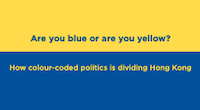 THE CORRESPONDENT magazine can be read online at the FCC’s website, which also has information about upcoming events and how to join the club. READ MORE
THE CORRESPONDENT magazine can be read online at the FCC’s website, which also has information about upcoming events and how to join the club. READ MORE
RELATED
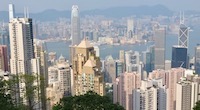 HONG KONG STAYCATION: Hong Kong’s tourism industry has been battered by months of protests. We took a week-long staycation to see what’s happening on the ground. READ MORE
HONG KONG STAYCATION: Hong Kong’s tourism industry has been battered by months of protests. We took a week-long staycation to see what’s happening on the ground. READ MORE
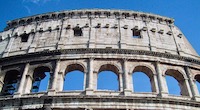 TOP 10 VIRTUAL ATTRACTIONS: Many of the world’s most popular tourists sites are closed because of the coronavirus crisis, but you can still visit them virtually while you’re self-isolating. READ MORE
TOP 10 VIRTUAL ATTRACTIONS: Many of the world’s most popular tourists sites are closed because of the coronavirus crisis, but you can still visit them virtually while you’re self-isolating. READ MORE
RECOMMENDED
 WELCOME TO OUR WORLD! Afaranwide’s home page – this is where you can find out about our latest posts and other highlights. READ MORE
WELCOME TO OUR WORLD! Afaranwide’s home page – this is where you can find out about our latest posts and other highlights. READ MORE
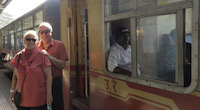 SHIMLA, QUEEN OF THE HILLS: Government officials once retreated to Shimla in the foothills of the Himalayas to escape India’s blazing hot summers. Now tourists make the same journey. READ MORE
SHIMLA, QUEEN OF THE HILLS: Government officials once retreated to Shimla in the foothills of the Himalayas to escape India’s blazing hot summers. Now tourists make the same journey. READ MORE
 TEN THINGS WE LEARNED: Our up-to-the-minute guide to creating a website, one step at a time. The costs, the mistakes – it’s what we wish we’d known when we started blogging. READ MORE
TEN THINGS WE LEARNED: Our up-to-the-minute guide to creating a website, one step at a time. The costs, the mistakes – it’s what we wish we’d known when we started blogging. READ MORE
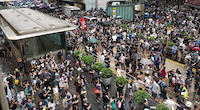 TROUBLED TIMES FOR EXPATS: Moving abroad can seem an idyllic prospect, but what happens when sudden upheavals or the inescapable realities of life intrude? READ MORE
TROUBLED TIMES FOR EXPATS: Moving abroad can seem an idyllic prospect, but what happens when sudden upheavals or the inescapable realities of life intrude? READ MORE
LET'S KEEP IN TOUCH!
Can City's Economy Survive
Without Tourism Dollars?
The Answer’s Yes, Apparently, But Not as We Know It

SUE BRATTLE
Panel discussion on Hong Kong tourism at the Foreign Correspondents’ Club
AS IF anyone needed reminding how dire life had become, the Hong Kong government announced stricter measures to fight COVID-19 the day before this panel took place. As the city suffered an uptick in cases, this talk on the fate of Hong Kong tourism became the last real event, as opposed to online Zooms, the FCC would hold for the foreseeable future. I stayed away and watched on Facebook.
Against such doom and gloom, all three panellists rose above the crisis to give fascinating insights into their very different worlds. Asim Hussain, co-founder of Black Sheep Restaurants and owner of the only Punjabi restaurant in the world to have a Michelin star, described things as “tougher than tough”. “We’ve been between a rock and a hard place since the unrest last year,” he said, referring to the months of protests in Hong Kong.
Douglas Young, founder of the Goods of Desire chain that draws on Hong Kong designs for its lifestyle brand, said: “Our workshops in Hong Kong have saved us. We haven’t been able to produce goods for our shops because there is no demand. But we can produce face masks, and 70 to 80 per cent of our business is now masks.”

Even financial advisor Alicia García Herrero, chief economist for Asia Pacific at French investment bank Natixis, managed some good news. “The fact the GDP hasn’t collapsed here is a positive. We’re entering a double recession, but we’re better than the US, Europe and some other Asian countries. The finance sector here is doing well. Yes, it is difficult for Hong Kong but the economy is still holding up.”
Then came the home truths. Of the 15,000 restaurants that were operating in Hong Kong last summer, Hussain reckoned a third will shut by autumn this year. Herrero said: “In my humble opinion, I believe Hong Kong government has been stingy given the resources it has. Singapore and Australia have done more. The government should step up more than we’ve seen so far.” And retailer Young said: “I believe the world will not be the same again.”
Herrero, an adviser to the Hong Kong Monetary Authority’s research arm and the Asian Development Bank, reckoned Hong Kong is suffering from a triple whammy – the trade war, the pandemic, and what she called protests-plus, the lengthy protests last year and the ongoing unrest in the wake of the National Security Law recently imposed on the city by China. “Retail sales depend at least by half on arrivals from the mainland,” she said.
Why would mainland Chinese want to visit a city where protests and anti-mainland sentiment could flare any moment? Young saw this as a global issue. “A fourth thing affecting us is this anti-Asia, anti-Chinese feeling. I don’t see people around the world wearing modern Chinese clothing. There’s a huge correlation between tourists and retail. We have two shops at the airport we rely on, and we haven’t operated them for six months.”
Hussain, who owns 20 restaurants across the city, described the new normal as “a cat-and-mouse game”. He explained: “When a wave comes, we need to hunker down. We will never go back to normal; for the next year at least, we’ll be focusing on keeping our people safe and healthy.”
Not least in this cat-and-mouse future is the landlord-tenant dynamic. Hussain, who advises the government on his sector, said: “One recommendation we made [to the government] in March which was not accepted was to make restaurants bailiff-proof. Some landlords have given us breathing space, others immediately sent us legal notices. The behaviour is all over the place.”
A point proved by retailer Young’s experience: “The airport allowed us to close our stores and not pay any rent. During the protests, even if we weren’t paying rent we’d still have been making a loss.”
But economist Herrero had some common-sense advice on this thorny issue in a city with some of the highest rents in the world: “The vacancy ratio for retail [the amount of shops standing empty] in Hong Kong is about 12 per cent so landlords will have to offer cuts. We will see an adjustment in rents very soon.”
In other words, they’ll settle for some rent rather than no rent at all. And if Douglas Young’s dream comes true, many or most of those shops will be local businesses rather than the posh Euro-brands that currently dominate the city and reflect the mainlanders’ tastes.
TOP PHOTO: Hong Kong’s iconic Star Ferry – a favourite of visitors – in colours promoting the city as a tourism centre.
BYLINE PHOTO: Sue in a Goods of Desire mask.
July 2020
What is the Foreign Correspondents’ Club?
CLUBS like the one in Hong Kong have sprung up wherever journalists from other countries need to gather. In Hong Kong, many such correspondents covered the war in Vietnam in the 1960s and 70s, and these days are more likely specialists in mainland China and/or the finance sector. The club started life in the mainland, moving to Hong Kong in 1949 as Mao formed the Peoples’ Republic of China, and is now housed in a heritage building in Central. Protests and coronavirus permitting, it holds regular speaker panel discussions and stands up for press freedoms in the region. Sue was editor of its magazine, The Correspondent, for two-and-a-half years until the July 2020 issue.
ADDRESS: North Block, 2 Lower Albert Road, Central, Hong Kong. PHONE: (+852) 2521 1511. EMAIL: concierge@fcchk.org
July 2020
 THE CORRESPONDENT magazine can be read online at the FCC’s website, which also has information about upcoming events and how to join the club. READ MORE
THE CORRESPONDENT magazine can be read online at the FCC’s website, which also has information about upcoming events and how to join the club. READ MORE
RELATED
 HONG KONG STAYCATION: Hong Kong’s tourism industry has been battered by months of protests. We took a week-long staycation to see what’s happening on the ground. READ MORE
HONG KONG STAYCATION: Hong Kong’s tourism industry has been battered by months of protests. We took a week-long staycation to see what’s happening on the ground. READ MORE
 TOP 10 VIRTUAL ATTRACTIONS: Many of the world’s most popular tourists sites are closed because of the coronavirus crisis, but you can still visit them virtually while you’re self-isolating. READ MORE
TOP 10 VIRTUAL ATTRACTIONS: Many of the world’s most popular tourists sites are closed because of the coronavirus crisis, but you can still visit them virtually while you’re self-isolating. READ MORE
RECOMMENDED
 WELCOME TO OUR WORLD! Afaranwide’s home page – this is where you can find out about our latest posts and other highlights. READ MORE
WELCOME TO OUR WORLD! Afaranwide’s home page – this is where you can find out about our latest posts and other highlights. READ MORE
 SHIMLA, QUEEN OF THE HILLS: Government officials once retreated to Shimla in the foothills of the Himalayas to escape India’s blazing hot summers. Now tourists make the same journey. READ MORE
SHIMLA, QUEEN OF THE HILLS: Government officials once retreated to Shimla in the foothills of the Himalayas to escape India’s blazing hot summers. Now tourists make the same journey. READ MORE
 TEN THINGS WE LEARNED: Our up-to-the-minute guide to creating a website, one step at a time. The costs, the mistakes – it’s what we wish we’d known when we started blogging. READ MORE
TEN THINGS WE LEARNED: Our up-to-the-minute guide to creating a website, one step at a time. The costs, the mistakes – it’s what we wish we’d known when we started blogging. READ MORE
 TROUBLED TIMES FOR EXPATS: Moving abroad can seem an idyllic prospect, but what happens when sudden upheavals or the inescapable realities of life intrude? READ MORE
TROUBLED TIMES FOR EXPATS: Moving abroad can seem an idyllic prospect, but what happens when sudden upheavals or the inescapable realities of life intrude? READ MORE
LET'S KEEP IN TOUCH!
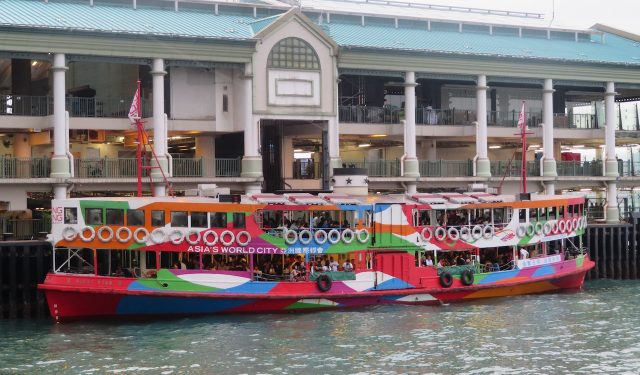
Can Hong Kong's Economy Survive Without Tourism Dollars?
The Answer’s Yes, Apparently, But Not as We Know It

SUE BRATTLE
Panel discussion on Hong Kong tourism at the Foreign Correspondents’ Club
AS IF anyone needed reminding how dire life had become, the Hong Kong government announced stricter measures to fight COVID-19 the day before this panel took place.
As the city suffered an uptick in cases, this talk on the fate of Hong Kong tourism became the last real event, as opposed to online Zooms, the FCC would hold for the foreseeable future. I stayed away and watched on Facebook.
Against such doom and gloom, all three panellists rose above the crisis to give fascinating insights into their very different worlds. Asim Hussain, co-founder of Black Sheep Restaurants and owner of the only Punjabi restaurant in the world to have a Michelin star, described things as “tougher than tough”.
“We’ve been between a rock and a hard place since the unrest last year,” he said, referring to the months of protests in Hong Kong.
Douglas Young, founder of the Goods of Desire chain that draws on Hong Kong designs for its lifestyle brand, said: “Our workshops in Hong Kong have saved us. We haven’t been able to produce goods for our shops because there is no demand. But we can produce face masks, and 70 to 80 per cent of our business is now masks.”

Even financial advisor Alicia García Herrero, chief economist for Asia Pacific at French investment bank Natixis, managed some good news.
“The fact the GDP hasn’t collapsed here is a positive. We’re entering a double recession, but we’re better than the US, Europe and some other Asian countries. The finance sector here is doing well. Yes, it is difficult for Hong Kong but the economy is still holding up.”
Then came the home truths. Of the 15,000 restaurants that were operating in Hong Kong last summer, Hussain reckoned a third will shut by autumn this year. Herrero said: “In my humble opinion, I believe Hong Kong government has been stingy given the resources it has.
Singapore and Australia have done more. The government should step up more than we’ve seen so far.” And retailer Young said: “I believe the world will not be the same again.”
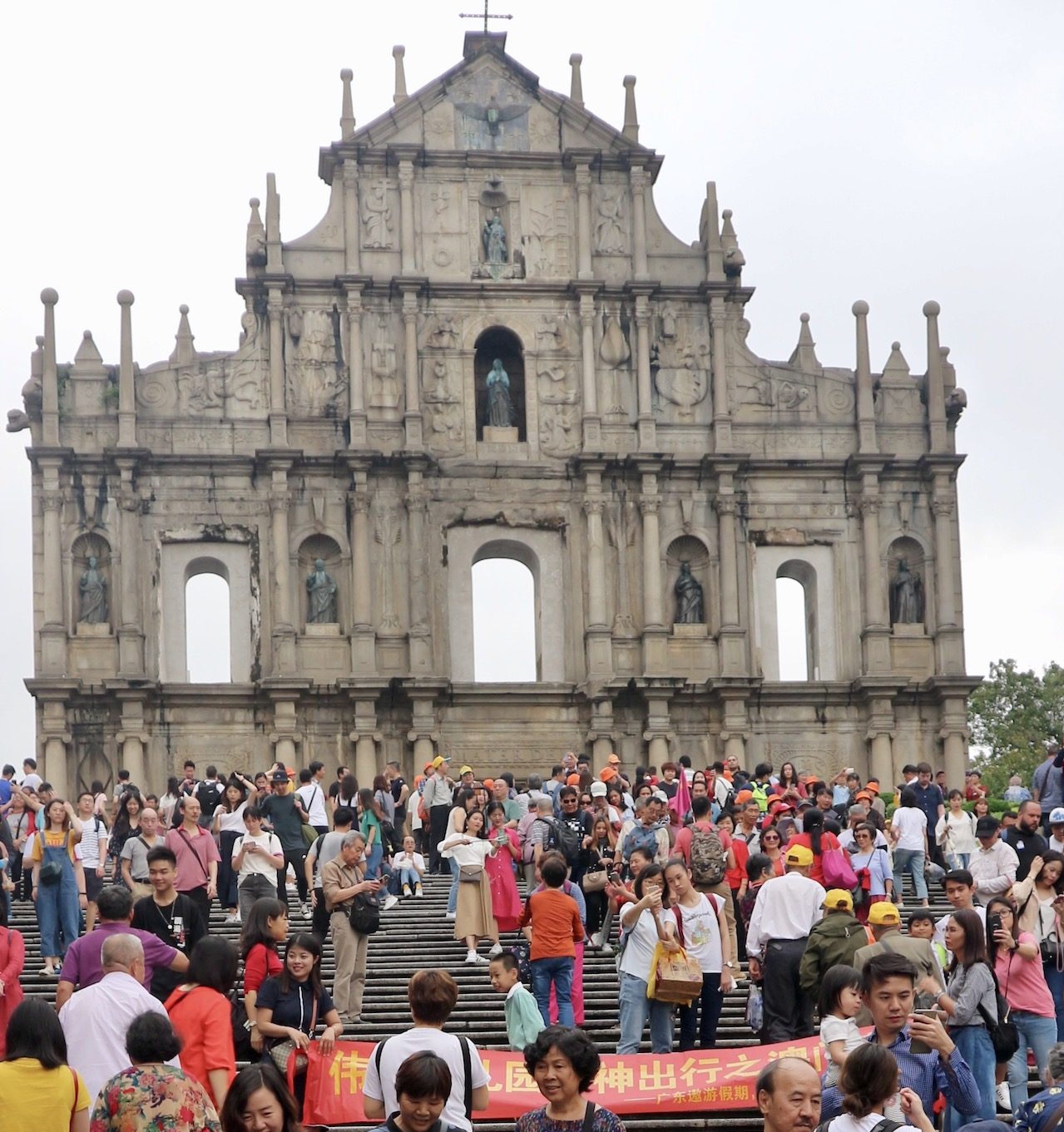


Herrero, an adviser to the Hong Kong Monetary Authority’s research arm and the Asian Development Bank, reckoned Hong Kong is suffering from a triple whammy – the trade war, the pandemic, and what she called protests-plus, the lengthy protests last year and the ongoing unrest in the wake of the National Security Law recently imposed on the city by China. “Retail sales depend at least by half on arrivals from the mainland,” she said.
Why would mainland Chinese want to visit a city where protests and anti-mainland sentiment could flare any moment? Young saw this as a global issue. “A fourth thing affecting us is this anti-Asia, anti-Chinese feeling. I don’t see people around the world wearing modern Chinese clothing.
“There’s a huge correlation between tourists and retail. We have two shops at the airport we rely on, and we haven’t operated them for six months.”
Hussain, who owns 20 restaurants across the city, described the new normal as “a cat-and-mouse game”. He explained: “When a wave comes, we need to hunker down. We will never go back to normal; for the next year at least, we’ll be focusing on keeping our people safe and healthy.”

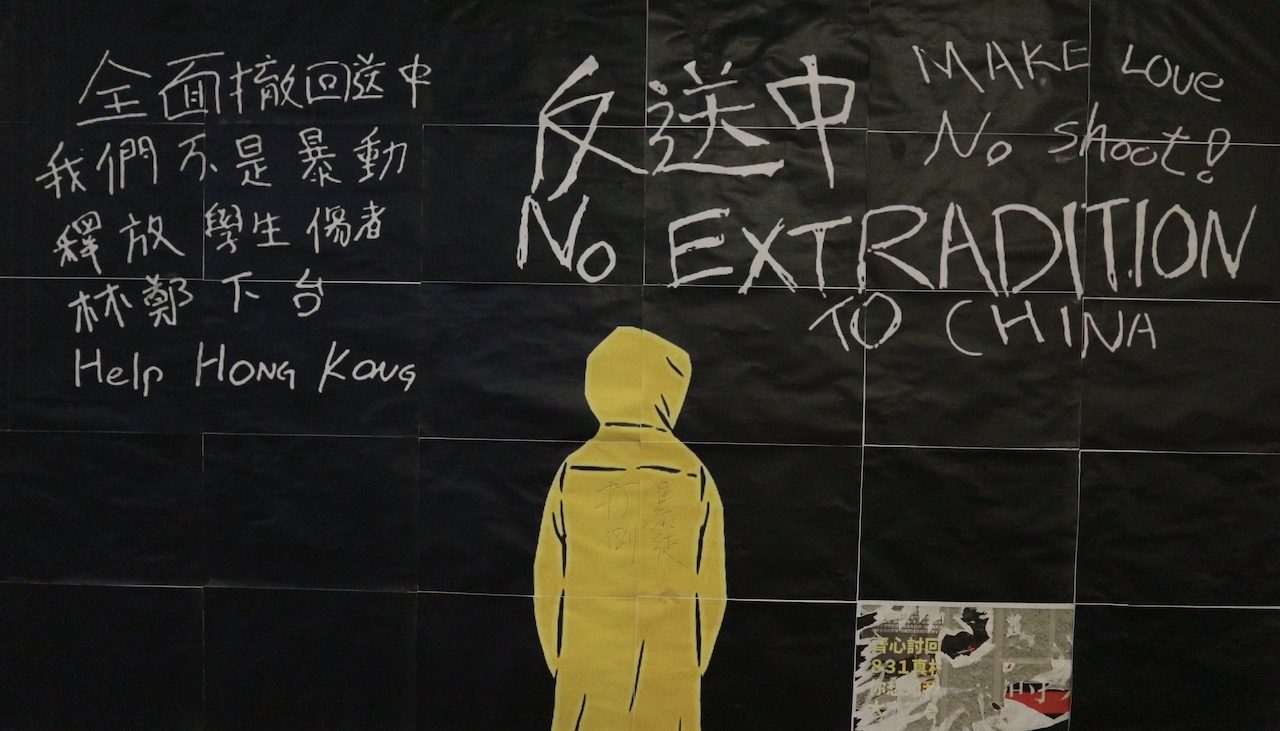
Not least in this cat-and-mouse future is the landlord-tenant dynamic. Hussain, who advises the government on his sector, said: “One recommendation we made [to the government] in March which was not accepted was to make restaurants bailiff-proof. Some landlords have given us breathing space, others immediately sent us legal notices. The behaviour is all over the place.”
A point proved by retailer Young’s experience: “The airport allowed us to close our stores and not pay any rent. During the protests, even if we weren’t paying rent we’d still have been making a loss.”
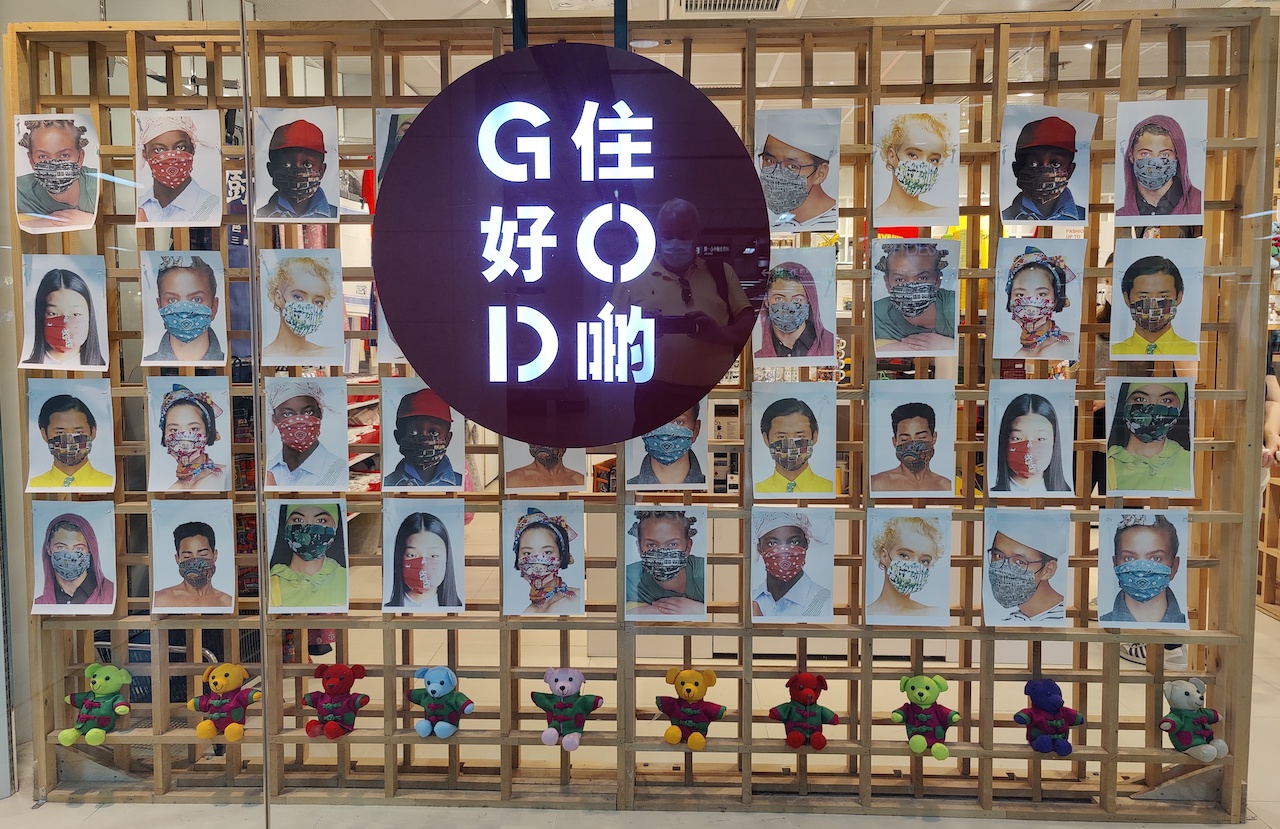
But economist Herrero had some common-sense advice on this thorny issue in a city with some of the highest rents in the world: “The vacancy ratio for retail [the amount of shops standing empty] in Hong Kong is about 12 per cent so landlords will have to offer cuts. We will see an adjustment in rents very soon.”
In other words, they’ll settle for some rent rather than no rent at all. And if Douglas Young’s dream comes true, many or most of those shops will be local businesses rather than the posh Euro-brands that currently dominate the city and reflect the mainlanders’ tastes.
TOP PHOTO: Hong Kong’s iconic Star Ferry – a favourite of visitors – in colours promoting the city as a tourism centre.
BYLINE PHOTO: Sue in a Goods of Desire mask.
July 2020
What is the FCC?
CLUBS like the one in Hong Kong have sprung up wherever journalists from other countries need to gather. In Hong Kong, many such correspondents covered the war in Vietnam in the 1960s and 70s, and these days are more likely specialists in mainland China and/or the finance sector.
The club started life in the mainland, moving to Hong Kong in 1949 as Mao formed the Peoples’ Republic of China, and is now housed in a heritage building in Central.
Protests and coronavirus permitting, it holds regular speaker panel discussions and stands up for press freedoms in the region. Sue was editor of its magazine, The Correspondent, for two-and-a-half years until the July 2020 issue.
ADDRESS: North Block, 2 Lower Albert Road, Central, Hong Kong. PHONE: (+852) 2521 1511. EMAIL: concierge@fcchk.org
July 2020
 THE CORRESPONDENT magazine can be read online at the FCC’s website, which also has information about upcoming events and how to join the club. READ MORE
THE CORRESPONDENT magazine can be read online at the FCC’s website, which also has information about upcoming events and how to join the club. READ MORE
RELATED
 HONG KONG STAYCATION: Hong Kong’s tourism industry has been battered by months of protests. We took a week-long staycation to see what’s happening on the ground. READ MORE
HONG KONG STAYCATION: Hong Kong’s tourism industry has been battered by months of protests. We took a week-long staycation to see what’s happening on the ground. READ MORE
 TOP 10 VIRTUAL ATTRACTIONS: Many of the world’s most popular tourists sites are closed because of the coronavirus crisis, but you can still visit them virtually while you’re self-isolating. READ MORE
TOP 10 VIRTUAL ATTRACTIONS: Many of the world’s most popular tourists sites are closed because of the coronavirus crisis, but you can still visit them virtually while you’re self-isolating. READ MORE
RECOMMENDED
 WELCOME TO OUR WORLD! Afaranwide’s home page – this is where you can find out about our latest posts and other highlights. READ MORE
WELCOME TO OUR WORLD! Afaranwide’s home page – this is where you can find out about our latest posts and other highlights. READ MORE
 SHIMLA, QUEEN OF THE HILLS: Government officials once retreated to Shimla in the foothills of the Himalayas to escape India’s blazing hot summers. Now tourists make the same journey. READ MORE
SHIMLA, QUEEN OF THE HILLS: Government officials once retreated to Shimla in the foothills of the Himalayas to escape India’s blazing hot summers. Now tourists make the same journey. READ MORE
 TEN THINGS WE LEARNED: Our up-to-the-minute guide to creating a website, one step at a time. The costs, the mistakes – it’s what we wish we’d known when we started blogging. READ MORE
TEN THINGS WE LEARNED: Our up-to-the-minute guide to creating a website, one step at a time. The costs, the mistakes – it’s what we wish we’d known when we started blogging. READ MORE
 TROUBLED TIMES FOR EXPATS: Moving abroad can seem an idyllic prospect, but what happens when sudden upheavals or the inescapable realities of life intrude? READ MORE
TROUBLED TIMES FOR EXPATS: Moving abroad can seem an idyllic prospect, but what happens when sudden upheavals or the inescapable realities of life intrude? READ MORE
